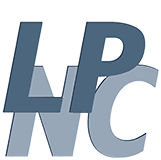- Share
- Share on Facebook
- Share on X
- Share on LinkedIn
Thèse
From 1 October 2021 to 30 September 2024
HALF-BRAIN: Multimodal assessment of neurocognitive functioning and anatomical brain reorganisation after hemispherotomy in patients with Rasmussen's encephalitis
Rasmussen's encephalitis is a chronic autoimmune disease characterised by progressive unilateral hemispheric atrophy. The disease causes drug-resistant partial epilepsy and is accompanied by progressive, disabling neurocognitive disorders. Because of its drug resistance, the only curative treatment is hemispherotomy, a functional disconnection of the affected hemisphere. Given the young age of the surgery, Rasmussen patients should benefit from significant cerebral reorganisation, enabling significant recovery of cognitive functions. This reorganisation occurs unevenly, depending on the specific development trajectories of these functions and the individual cognitive and cerebral reserve, resulting in several cognitive and cerebral plasticity phenotypes. In addition to the cognitive recovery observed in adulthood, different patterns of cerebral reorganisation have also been described. It is therefore of particular interest to understand the strategies recruited by these patients and the neuroplasticity mechanisms involved. Overall, the aim of this research project is to assess the cognitive and cerebral determinants of recovery and reorganisation in adult patients with Rasmussen's encephalitis following hemispherotomy in childhood. A multimodal approach will be used, combining experimental psychology and neuropsychology to assess cognitive interaction for a wide range of cognitive functions (language, executive functions, theory of mind and memory), clinical parameters, and neuroimaging to specifically measure anatomical brain organisation. We hope to improve our understanding of patients with Rasmussen's encephalitis by describing cognitive and cerebral phenotypes in order to propose a dynamic and integrative model of neurocognitive functioning after hemispherotomy in Rasmussen's patients. New avenues of cognitive rehabilitation and pre-habilitation may be considered, to ensure the best possible neurocognitive recovery.
Supervisors
- Monica BACIU - Monica.Baciu univ-grenoble-alpes.fr (Monica[dot]Baciu[at]univ-grenoble-alpes[dot]fr) -
univ-grenoble-alpes.fr (Monica[dot]Baciu[at]univ-grenoble-alpes[dot]fr) -
- Marcela PERRONE-BERTOLOTTI - marcela.perrone-bertolotti univ-grenoble-alpes.fr (marcela[dot]perrone-bertolotti[at]univ-grenoble-alpes[dot]fr) -
univ-grenoble-alpes.fr (marcela[dot]perrone-bertolotti[at]univ-grenoble-alpes[dot]fr) -
- Christine BULTEAU-PEYRIE - cbulteau for.paris.fr (cbulteau[at]for[dot]paris[dot]fr)
for.paris.fr (cbulteau[at]for[dot]paris[dot]fr)
Keywords : neuroplasticity,cognition, neuropsychology, neuroimaging, brain, recovery/rehabilitation
Date
Financement
MESRI - ED
- Share
- Share on Facebook
- Share on X
- Share on LinkedIn
